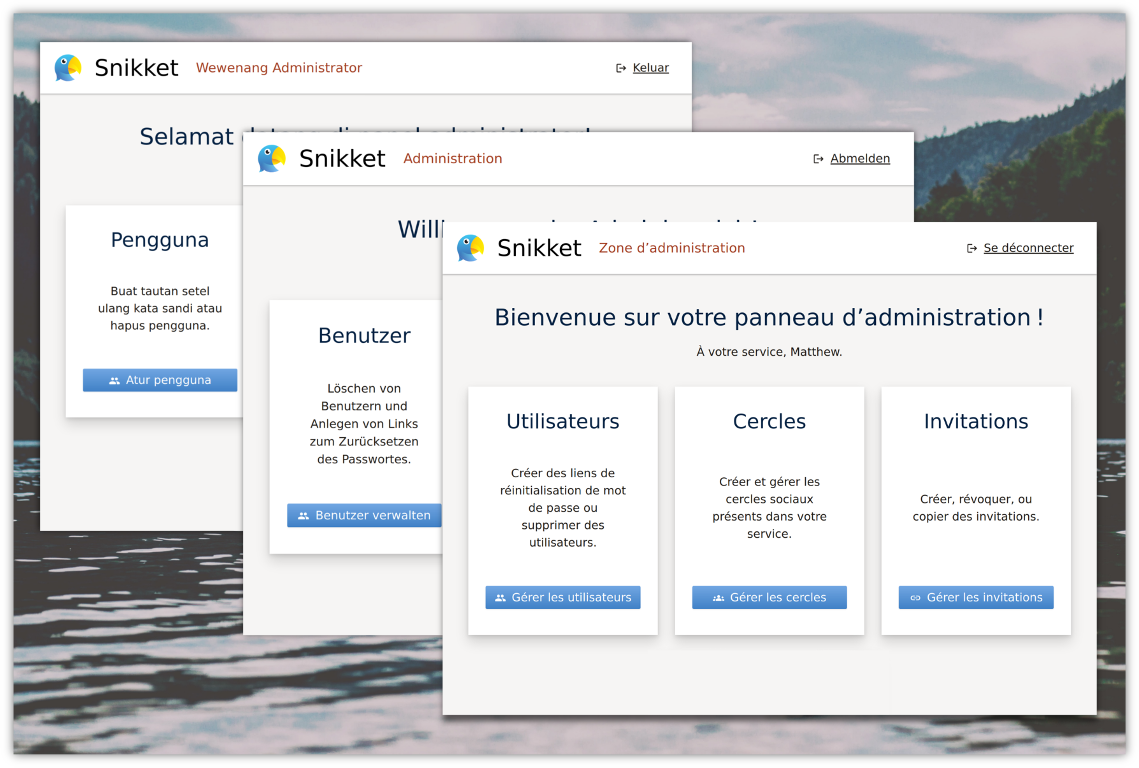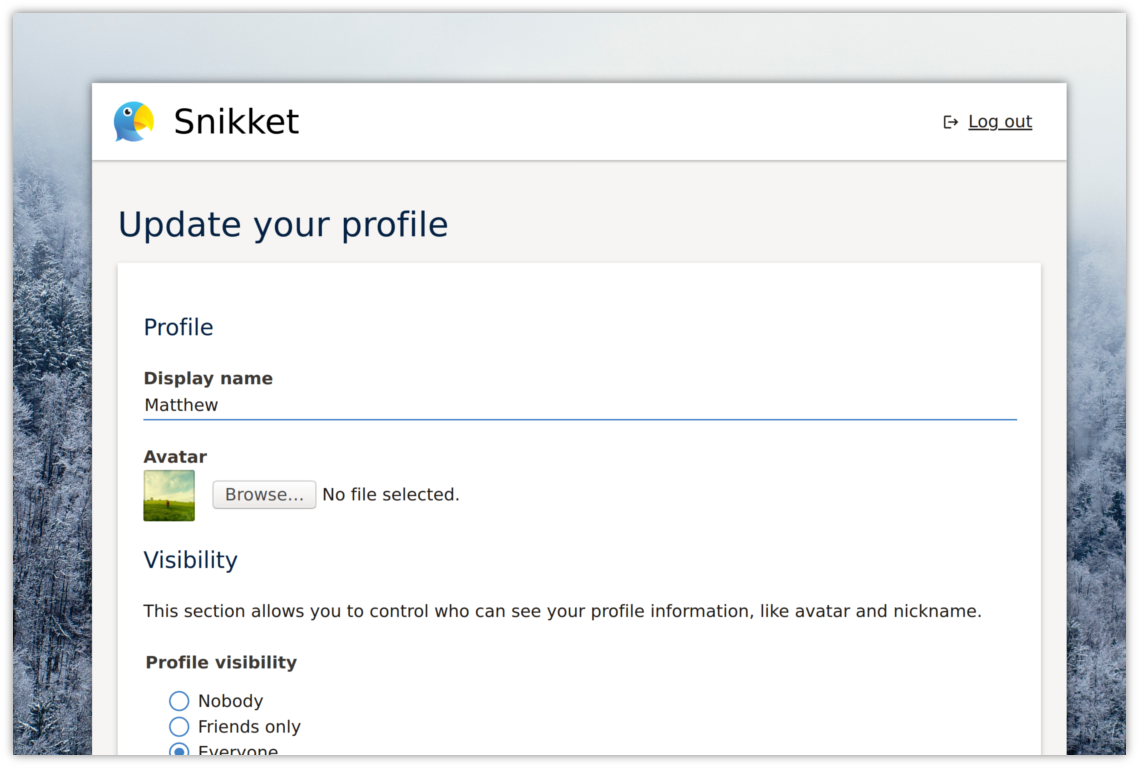February 2021 server release
A year ago, Snikket was first announced publicly, at the FOSDEM conference in Brussels. FOSDEM 2021 is next week, online of course, and I’ll be giving a talk about some of the thoughts that led to me starting the Snikket project.
A year is a long time on the internet! Since that initial announcement we’ve incorporated as a not-for-profit, formalized our goals and made significant progress towards them.
Today that progress continues, as we release the largest update to our self-hosted server software yet! This release includes a web administration dashboard, support for multiple distinct groups of users, and finally… support for Raspberry Pi and other ARM devices.
Admin dashboard
Until now the only way to manage your Snikket server - for example to invite new users or reset passwords - was by using the command-line. That is all about to change, as we now have a lovely web interface to perform all kinds of management tasks!

The Snikket web interface
The dashboard is already translated into multiple languages (currently English, French, German, Italian, Indonesian and Polish).
We also have a simple portal for non-administrative users to log in and manage their account. Currently this contains a profile editor, and will grow to include other account settings, and data import/export.

The user profile editor
This project has been the work of Jonas Schäfer, without whom it wouldn’t have been possible to ship anything quite as extensive or polished by now! Many thanks also to the community members who have contributed the initial translations.
Raspberry Pi and ARM support
We have grown our build infrastructure to include two Raspberry Pi servers, which now provide continous builds for ARM (32-bit and 64-bit) architectures. This means that finally the Snikket Docker images work out of the box on just about any Raspberry Pi device.
Due to the relatively low resource requirements of the Snikket server, and the relative affordability of Raspberry Pi devices, they make a great device to begin your self-hosting journey!
Circles
Snikket is designed with small groups of people in mind. Whether your Snikket instance is serving your family, club or workplace, we chose to make contact discovery easier by automatically showing all other users on the same Snikket service in your contact list.
However this could be problematic if you wanted to share the same server across multiple social groups. Maybe you want to invite your gaming buddies to your Snikket server, but without them awkwardly finding all your family members in their contact list.
We have added a new feature which allows you to have multiple groups of people, which we refer to as “circles”. When you create an invitation you can choose which circle to assign the new user(s) to.
If you are upgrading from a previous version of the Snikket server, there will be an initial migration process that automatically moves all users to a new default circle.
Finally, circles have an associated private group chat to which all circle members are invited. This replaces the clunky ‘general’ chat that was created in previous releases.
Other changes
We’ve made some architectural changes in this release. If you’re upgrading from a previous release, make sure you follow the upgrade notes in the changelog.
The file upload limit is now 16MB (the same as WhatsApp’s limit). We are working on allowing even higher limits but with per-user quotas for a future release, to ensure you don’t run out of precious disk space :)
Finally, if you’re setting up Snikket for the first time, we now have a collection of scripts and resources to help you get started, over at snikket-selfhosted!
We’re looking forward to hearing feedback about this release. Let us hear your success stories 😉
A quick reminder that this is an independent open-source project working to provide a free (as in freedom) alternative to proprietary mainstream messaging services. If you benefit from the software we produce, or simply want to support our work, feel free to donate, no matter how small!
Snikket Blog
Feed
Subscribe to our RSS feed for the latest updates from the Snikket project!
Recent Posts
- Snikket at FOSDEM 2026
- A new look for Snikket Android
- Snikket Server - December 2025 release
- Introducing Borogove, the new Snikket SDK
- Snikket Server - November 2025 release
- Snikket Server - September 2024 release
- Snikket Server - July 2024 release
- Snikket Android app temporarily unavailable in Google Play store [RESOLVED]